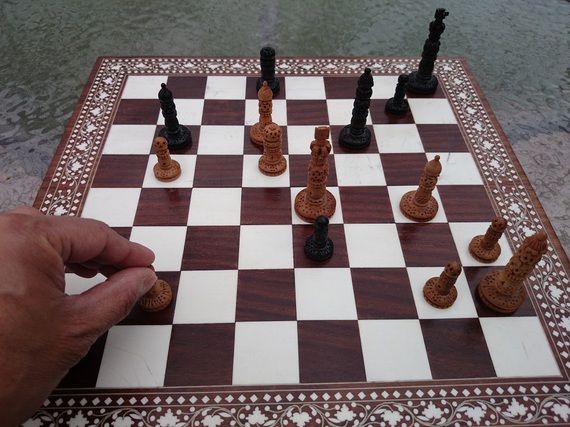Why chess? Because chess is more than a board game. It teaches us to think analytically and be more successful in life, no matter what our profession.
If you favor intelligence over strength, then think chess. Unlike some other games, chess does not rely on luck, muscular strength or brute force. It is a brain over brawn exercise and an exquisite art form that has existed for more than 1500 years.
In chess, both players are provided with equal opportunities and they use strategy and intelligence to win.
So why is chess more than a game?
Because the pattern of thinking in a game of chess can be used while dealing with real-life situations to achieve better outcomes. As a chess player, you learn to analyze situations, evaluate options, plan strategically and solve problems. Attributes that will help us be more successful in our daily lives.
As a child, I learned to play chess when my dad taught us (my sister and I) and now as a grownup, I have found that when it comes to tackling real-life problems, I think of situations as if they were in a game of chess. I am only an average chess player, but here is some life application stuff I've learned from chess:
Foresight, anticipation, prediction: the ability to consider the consequences of a particular action by someone else, and using this information to plan and decide your actions. Foresight helps in planning and decision-making. Imagine if you could predict the actions of someone several moves before they act. Chess teaches you exactly this.
Circumspection: being able to view the big picture. Remember you can see all the pieces on the board in a game of chess, your opponent's and yours. If you know what moves your opponent is going to play, several moves ahead, wouldn't that be a great skill to use in real-life situations?
Caution: We all know how important it is to think and act cautiously. We can only be cautious if we think.
Strategy: Whether it is in a boardroom or in battle, there is no denying that the art of planning to achieve success is what strategy meetings are all about. Chess is the ultimate game that teaches you strategy.
"It's not enough to be talented. It's not enough to work hard and to study late into the night. You must also become intimately aware of the methods you use to reach your decisions" -- Garry Kasparov

